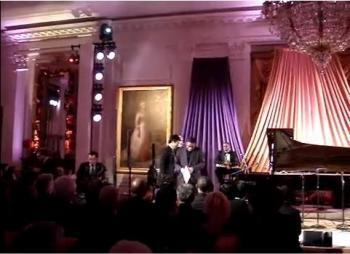The communist regime’s media mouthpieces reprinted an article from the CCP’s newspaper Study Times titled “How to View International Non-Governmental Organizations [NGOs in China].” The CCP’s propaganda media gave the article much media play. The article shifted blame for many of China’s current problems onto foreign NGOs, commenting, “Some foreign non-governmental organizations are destroying political stability, and some are encouraging corruption in China.”
China issues expert Ms. He Qinglian said, “This article could be viewed as the communist regime’s open signal on its policy to tighten control over foreign NGOs.”
Ms. He stated that allowing foreign NGOs to come into China used to be the main theme of the CCP’s policy of opening up to the outside world. But during the past two years, the CCP’s main political mission has been the prevention of a “color revolution.” [ Editor’s note: “Color revolution” refers to the creative, nonviolent movements in post-communist societies in Central and Eastern Europe that led to the disintegration of authoritarian regimes. A color or flower is chosen as a symbol, such as the 2004 Orange Revolution in Ukraine or the 2003 Rose Revolution in Georgia. ]
The CCP’s focus and control over foreign NGOs has become more restrictive by the day.
Foreign NGOs as ‘Threats’
The article emphasized that foreign NGOs activities in China present latent threats: harming China’s national security, destroying Chinese political stability, encouraging corruption and promoting “foreign ways” in China.
The article stated: “When foreign NGOs are providing public welfare by helping the poor, offer environmental protection, etc., these latent threats bring foreign ideology and values, methods, organizational forms, operating mechanisms, as well as more specific development patterns, into Chinese society.”
The article went on to say that these “foreign ways,” mostly from Western countries, not only influence Chinese society, but will cause the transformation of the Chinese social system, and inevitably, will also indirectly result in profound influences in the so-called impenetrable domain of Chinese communist regime control and suppression.
Ms. He Quinglian believes the so-called “foreign ways in China” refer, in other words, to a “peaceful transformation” or “color revolution.”
Before the article was published, the Beijing authorities had been investigating some private local organizations that been accepting “suspicious foreign funds.”
Preventing a Color Revolution
Trend magazine on May 19 reported on the Political Bureau Standing Committee Expanded Meeting chaired by regime leader Hu Jintao. The subject for discussion was the “Maintaining Advancement Movement.”
Hu gave a lengthy speech on preventing a color revolution and proposed “a people’s war without the smoke of gunpowder.” Hu proposed that the NGOs must be suppressed, and made a further proposal that “we absolutely cannot allow the promotion of better human rights to launch attacks on our party.”
Worse yet, Hu also proposed “to not allow the creation or recognition of moral leaders” such as Yeltsin, Harvill, Walesa and Aung San Suu Kyi.
Hu ’s speech was turned into a CCP central committee document, which was distributed to provincial and military district commander levels and turned into a condensed version for county and military regiment commander levels.
Trend magazine chief editor Zhang Weiguo pointed out while Hu Jintao pledged to comprehensively force out any color revolutions, currently a “black revolution” was occurring in China, in that the CCP laws increasingly resembled “organized crime.”
Zhang pointed out that various signs indicated that in order to maintain the vested interests from the one-party monopoly, the communist regime would rather have “organized crime” take the lead in the transformation than a human rights color revolution.
Reversing the Opening-Up Policy
He Quinglian explained that by connecting the CCP’s recent foreign policies together, one can find three situations developing almost concurrently:
- The establishment of party branches and unions inside foreign investment enterprises. The real purpose of this move is not to help the workers but to strengthen the Party’s control.
- Narrowing the “open door” to NGOs so as to manage in advance public opinion to prevent a color revolution.
- What used to be welcome in foreign investment was recently rejected in China. Chinese enterprises involved in overseas acquisitions are lauded in mainland media for reaching a milestone in “China’s globalization.” On the contrary, acquisitions made in China by international companies, regardless whether the acquisitions involve strategic industries or not, have all been regarded as harmful to the security of the Chinese economy.


